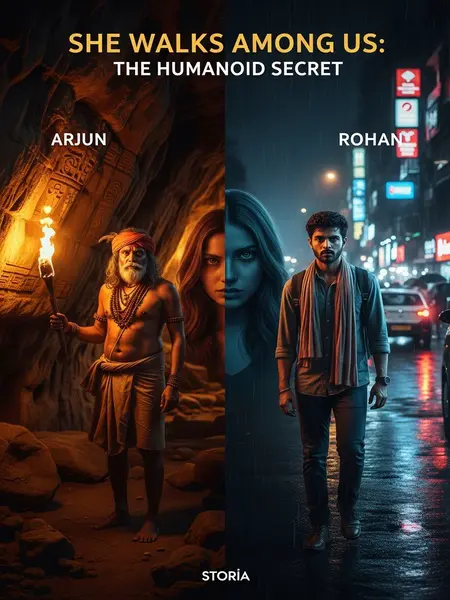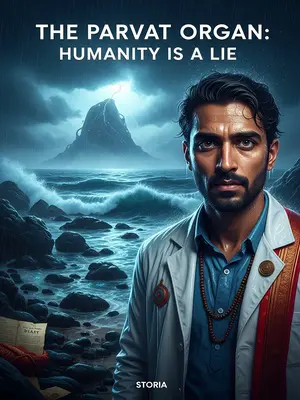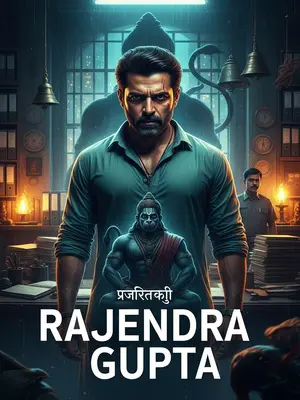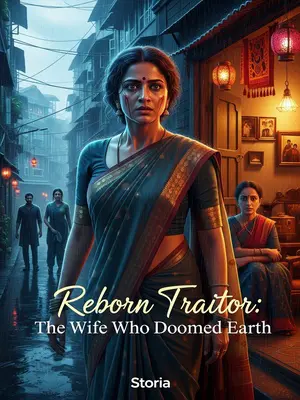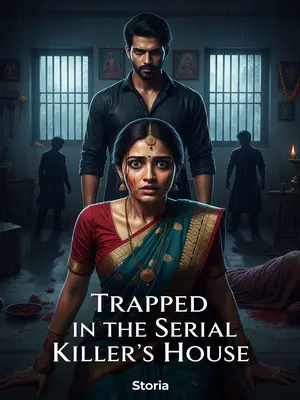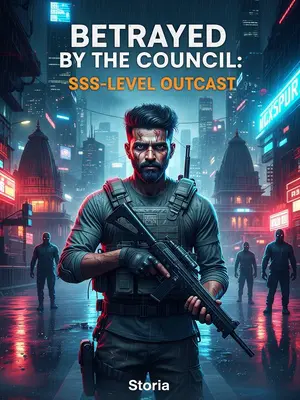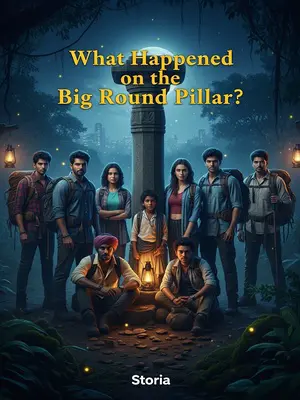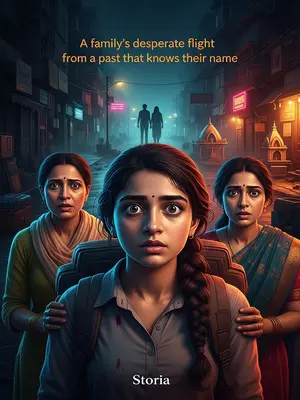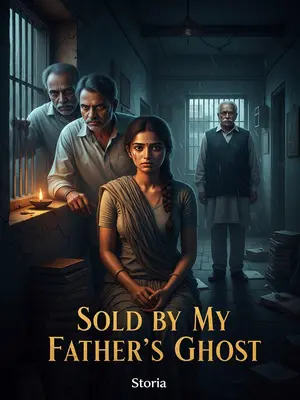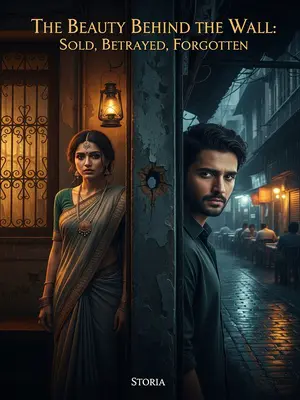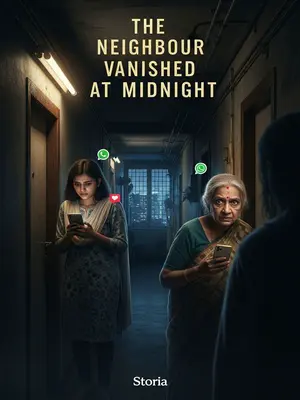Chapter 5: Riddles, Revelations, and the Search for the Flaw
The story ended there—unfinished. Was the face in the cave the humanoid? The guest? The leader? I scrolled, desperate for one more clue. Nothing.
Most importantly: what was the flaw?
“Kya hai yaar? This suspense is killing me!” I muttered, not caring if Ma overheard.
I grabbed my notebook, sat cross-legged, and flipped through my own clues. The old library smell filled the air. A street dog barked outside.
I remembered all those uncanny valley videos—robots, dolls, jump-scares. But those are obvious. Meera’s story was different.
In her story, humanoids look exactly like us. That’s what’s scary.
I chewed my pencil, frowning. “How do you spot a fake when even their shadow matches yours?”
"If humanoids look just like humans, aren’t they just human?"
I stared at the ceiling, hoping for a WhatsApp miracle. No luck.
I scribbled wild ideas, crossing each one out. Still, my curiosity burned. Ghost stories, midnight dares, stormy-night whispers—curiosity ran in my blood.
“There are no two identical leaves in the world.”
I remembered my biology teacher’s peepal leaves. “If that’s true for leaves, it must be true for people.”
I vowed to solve it before Meera. This time, the twist would be mine.
I took out a set of wooden nesting dolls from Jaipur. I lined them up, tapping each one for luck. Two almost identical dolls—if one was human and one was humanoid, where’s the flaw?
I squinted, turning them in the light. Nothing. Their painted smiles mocked me.
Frustrated, I tossed them aside. “Even an early man could spot the flaw. I refuse to give up.” I stomped my foot, then caved and ate lunch anyway.
Wait.
The word echoed, as if someone whispered it. My heart skipped.
Since Arjun saw the flaw in a dream, it must be something deeper.
I grabbed my phone, reread Meera’s story. In the dream, Arjun recognized the flaw—but faces in dreams are blurry. If he’d never met the stranger, how did he know?
That’s suspicious, I realized. Maybe the clue isn’t what you see, but what you feel.
I scribbled: “Is fear itself the clue?”
When Arjun met the leader, he sensed it instantly—and died of fear. The answer lurked in silence, a secret passed down through generations.
Maybe the flaw isn’t in their looks. That’s why no one else could spot it. The secret’s somewhere else.
I nodded, satisfied. The real difference was never on the surface.
I listed my clues:
First: No visible difference—flaw’s hidden inside.
Second: The humanoid said even the devas don’t know it exists. Maybe it’s from beyond the universe, or buried deep in the earth.
Third: The cheetah couldn’t smell humans in the cave. Maybe humanoids have no human scent. Maybe the first sign of a humanoid is someone who never sweats in a Pune summer.
I spent the morning deep in notes, ideas swirling. My phone pinged with friends’ messages, but I ignored them, Byomkesh Bakshi style.
No visible flaw. What else?
I tried thinking sideways. What if it’s in their speech? The way they eat? How they remember things? But every idea felt silly.
Crumpled papers overflowed the bin. Nothing fit.
I stretched, desperate for inspiration. “Let’s see some real people. Maybe I’ll get lucky.”
I told Ma I’d be back soon, then hopped into an auto to the amusement park—Pune’s biggest, with a zoo, science museum, and endless crowds.
The auto rattled through traffic, past chai stalls, students, and chana vendors. At the gate, the guard waved me in. It was a weekend—Bollywood music blasting, Ferris wheel spinning, the crowd alive with colour. The smell of samosas frying at the food stall mixed with the sticky sweetness of gola syrup in the air.
I found a bench and watched the crowd, notebook in hand. The bench creaked, pigeons pecked nearby.
To my left, a clown in garish makeup sold balloons. Kids loved him, laughing at his painted nose and juggling oranges. Here, clowns brought joy—not fear.
To my right, a woman in a faded saree, heavy mangalsutra at her throat, walked stiffly, her expression blank. For a second, I wondered if she was hiding something, then shrugged. Maybe she just had a bad back.
I jotted a note: “Ordinary people can look strange too—doesn’t mean they’re not human.”
Just then, a soft, singsong voice: "Bhaiya, want your fortune told?"
I looked up. A girl—sixteen maybe—stood there, hair in neat braids, a black kurta swirling around her, silver anklet jingling at her ankle. Her little table was covered in bright cards and a faded red cloth. Mehendi patterns were fading on her palm.
She smiled, the sun winking off her nose stud. “Roadside jyotish hoon—I tell love, career, even supernatural fortunes.”
I laughed. "No thanks, behen. I don’t even know my own future."
But she was persistent. “Try, na! I’m really good. I can even tell you about things not from this world.”
I grinned. “Actually, I’m looking for someone.”
She arched an eyebrow. “Lost and found, kya?”
“Someone who looks human, but isn’t.”
She didn’t flinch. Instead, she studied me, lips pursed, eyes sharp.
"Looks human? How?"
I traced an invisible outline in the air. “From far, from near—exact same. No difference.”
She laughed, her anklet chiming. “You must be a writer too!”
She shook her head, silver jhumka bobbing. “Impossible. Even twins aren’t exactly alike.”
Whoosh—
A gulmohar branch shook above us, two leaves drifted down. I caught them, heart thumping.
“What did you just say?”
She grinned, her eyes shining. “There are never two people in the world exactly the same.”
Her words echoed—the rustle of leaves, children’s laughter, the koel’s distant call. Maybe the answer isn’t what we see, but what we sense, standing next to something that shouldn’t exist at all.
And somewhere behind me, I thought I heard someone whisper my name—just out of sight.
